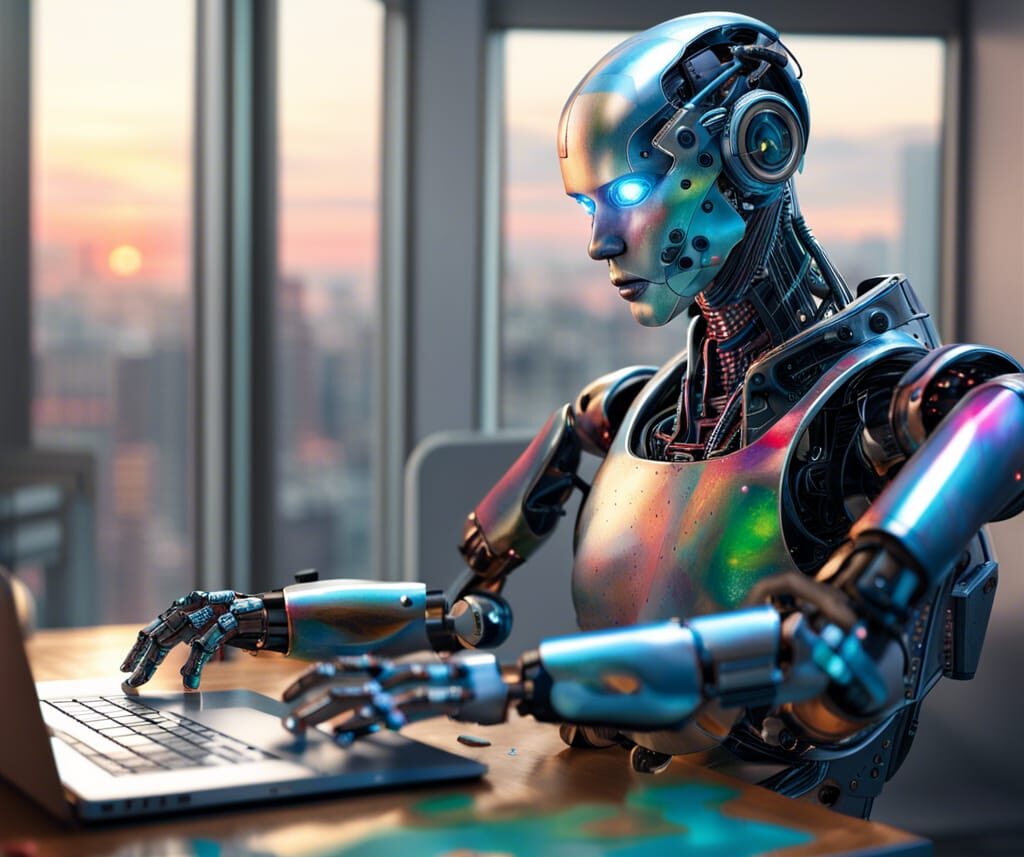Although artificial intelligence might be relatively new to the general public’s consciousness (White House included), some form of the technology has been a longtime presence in many technologists’ working lives.
Take Wharton Research Data Services engineer Tim Allen’s word for it:
Whether they consider it a useful tool or a hindrance prone to mistakes — or just another overblown hype moment — they are also increasingly considering how AI will impact their jobs and industry in the future. As one global artificial intelligence consulting leader told Technical.ly in September: “Everybody’s job will probably involve knowing how to work with AI in some way, shape or form.”
During a recent virtual gathering with a handful of 2023 RealLIST Engineers honorees from Pittsburgh and Philadelphia, tech pros discussed how AI impacts their work and how they’ve chosen to use it. We asked: How do you see the tech changing your industry, or your specific job? How can technologists future-proof their careers so they can’t be easily replaced by AI?
Overall, they told us: Yes, they anticipate AI will be a part of their work into the future, but subject matter experts will ensure the tech is actually useful and accurate.
AI can be a tool, not a replacement, if used strategically
As someone whose side business is devoted to advising companies on how to incorporate AI into their work, University of Pennsylvania IT Director Jeremy Gatens believes there are some tasks AI can’t adequately tackle the way a person could — and if you have a product in mind with a shaky foundation, AI won’t be a cure-all if it’s haphazardly applied.
With that in mind, it’s important to have a solid implementation strategy so AI as a tool doesn’t create more problems than it solves — and it is a tool, Gatens said, one that can assist employees already in certain professions as opposed to replacing them.

“You’re not going to see artificial intelligence replace nurses. You’re just not,” Gatens said. “However, what you will see is nurses that use AI are going to have better diagnoses than nurses who don’t. And I also believe that AI isn’t like a silver bullet, or a magic panacea. If you have problems in your process, things like design thinking and really analyzing what the problem and defining what the solution is, are still going to be required throughout.”
(One example of AI use in healthcare settings comes from Abridge, a Pittsburgh-based company behind an AI-powered app that records and condenses conversations between patients and doctors.)
Remember: AI has limits
Jason Blanchard, engineering lead for HR tech company Employee Cycle, noted that sure, it can be useful — but it can also be wrong.
“I’ve used ChatGPT to try to de-bug stuff, and it’s mostly just wrong,” he said. “But then there’s a little nugget in there that’s like, ‘Oh, that actually made me think about it differently,’ but you needed the subject matter expert there” to recognize it.
“It’s that overconfident guy who tells you something with absolute certainty and plausibility that is simply, they made it up,” Apostrophe Technologies CTO Tom Boutell added, “and you really need to be a subject matter expert to process that.”
We heard something similar from Gloria Bell, founder of the national nonprofit Women in Tech Summit, back in May: Smart professionals will emphasize their individuality and what they can do better than ChatGPT to stand out, she said. AI is going to force people to up their skills and become better at what they do, so AI can’t do it better.
Technologists should retain the basics, even if AI can do them, too
SEPTA Senior Business Data Analyst Noah Lee said he tries to be wary of relying too much on artificial intelligence — he doesn’t want using AI to complete daily tasks to lead to him losing the ability to do them well himself.
He wonders if in the future, some skills could eventually become obsolete the way, say, cursive writing has. He’s trying to ensure his skills remain sharp in the present.
When speaking to non-technical friends, he refers to AI as “fancy spellcheck, in the same sense that like, you get worse at typing,” Lee said. “I do think that there’s a risk for relying on AI to autocomplete all your code and write all your emails for you, that those skills can atrophy. And I think it remains to be seen whether that’s a good thing or a bad thing. It may be that the skills become obsolete, just like writing cursive is.”

Travis Southard is just a few years out of learning the basics of software engineering: He pivoted into the field by way of a bootcamp and apprenticeship, where he developed skills quickly on the job with the help of his more senior peers at the company. Companies will lose that staggered experience if they stop investing in earlier-stage talent, he said, and be left without people to fill more senior roles when those experts retire or move on.
“If the idea is that a lot of this low-level, tedious stuff gets covered by AI or by [GitHub] Copilot, we’re going to start to see a huge skills gaps, said Southard, who is now a software engineer with Brooksource.
AI users should consider the ‘why’
As with all tech, AI can advance good or evil causes — just depends on how it’s developed and applied.
From Toyz Electronics cofounder Wole Idowu’s perspective, what matters most is how AI is used. At Carnegie Mellon University, his alma mater, he said, engineering students are encouraged to be very intentional with their AI usage.
“It can be a very impactful tool,” Idowu said. “If it’s used for good, [like] with anything in engineering, it’s not just about the delivery, it’s also about why are you using this, where do you find the impact and what is important to you?”







